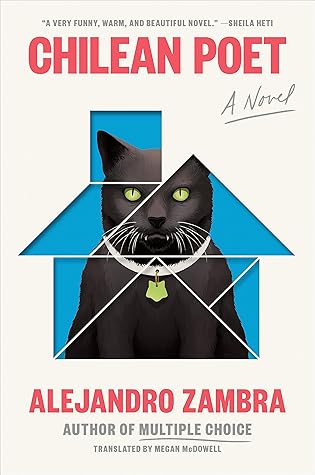More on this book
Community
Kindle Notes & Highlights
They were like two strangers searching desperately for a subject in common; it seemed like they were talking about something and were together, but they knew that really they were talking about nothing and were alone.
if anyone had seen them they would have thought that this was happiness: to dance naked in the living room, with no music, endlessly.
He always imagined the worst; he was more or less an expert in dreaming up horrible scenarios, in part because he felt like by anticipating pain he avoided it.
Everyone talks to themselves, for example. They never get that right in movies. It always seems unbearable if someone talked to themselves in a movie. We all talk to ourselves, but if we saw someone doing it in a movie, we might even leave halfway through, indignant, and go home and say out loud, to no one, to ourselves: What a terrible movie.
People say that’s what happiness is—when you don’t feel like you should be somewhere else, or someone else. A different person. Someone younger, older. Someone better.
Vicente believes it’s the poet rather than the prose writer who has a responsibility to notice absolutely all the details of every lived experience, not in order to relate them later, not so he can shout about them in a story, but to inscribe them, so to speak, in his sensibility, in his gaze: in a word, to live them.
“And do you really think all those sons of bitches are going to magically come together and agree to make education free?” asks León. His indignation is false. If by some stroke of bad luck León was ever elected as a representative or senator or governmental authority and came to belong to that group he now refers to as sons of bitches, he would most likely act like one more son of a bitch.
There are times, to be sure, when it’s advisable or useful or necessary to think that our beloved has spent days or months or years or their entire life drunk.
She wanted to wake Jessye up to thank her or to ask her to never leave or to get her off. She had the almost unbearably romantic thought that she wanted to walk hand in hand with her. It wasn’t that she wanted to shout to the world that they loved each other—she simply wanted them to walk hand in hand down any street.
“A lot of people say that poetry is useless.” “They’re afraid of useless things. Everything has to have a purpose. They hate pure creation, they’re in love with corporations. They’re afraid of solitude. They don’t know how to be alone.”
“For me, writing is a way of returning to a place I’ve never been and don’t know,” she says suddenly, with feeling, as if she had just thought of it.
“So then what do the people need?” “I don’t know. Yoga, kickboxing, poetry, revolution. Real education, real joy, gardens, pedicures, ceviche. Rhythmic gymnastics, fencing. A lot of avocado, quinoa, cochayuyo. Sharp stones, superpowers, amulets. Good shoes. And especially sex, every day, every eight hours, religiously, like antibiotics. But really great sex, exceptional, cosmic. And good music.”
And then Pru thinks about staying in Chile, but her life is not a splendid bad movie, so she gets on the plane, and I would really like to get on it with her and keep her company and follow her everywhere she goes, but at this very moment there are about a million novelists writing about New York, probably while they listen to and hum along with that beautiful song that goes, “New York, I love you / but you’re bringing me down,” and I want to read their sophisticated novels, which I nearly always like, in fact I’m going to try to read them all to see if Pru or someone like Pru is in any of
...more
Because some things are both good and bad, as it is with leaves on one side velvety while the other side cuts your palm bloody.
poetry is made to be memorized, repeated, relived, recalled, invoked.
Maybe there’s a word to designate the opposite of mourning, what we feel not after someone dies but when they reappear; what we feel when we suddenly recover someone who had been absent even from our dreams.
the opposite of mourning coexists with mourning, it’s something like an elegiac joy.
It would have been better to blame poetry, but it would have been a lie, because there are those poems he has just read, poems that prove poetry is good for something, that words can wound, throb, cure, console, resonate, remain.
The beers come, and maybe it’s always like this: the beers come and the first sip is immediate, and the subsequent pause is for smiling or looking at your phone, and then comes the second sip, which is a little longer, and then suddenly there’s a silence of a different sort and there are no more smiles, because after the second sip of beer no one really knows how to behave.
I don’t know, we’re never going to know, because this ends here, this ends well, the way so many books we love would end if we tore out their final pages. The world is falling to pieces and everything almost always goes to shit and we almost always hurt the people we love or they hurt us irreparably and there doesn’t seem to be a reason to harbor any kind of hope, but at least this story ends well, ends here, with the scene of these two Chilean poets who look each other in the eye and burst out laughing and don’t want to leave that bar for anything, so they order another round of beers.


